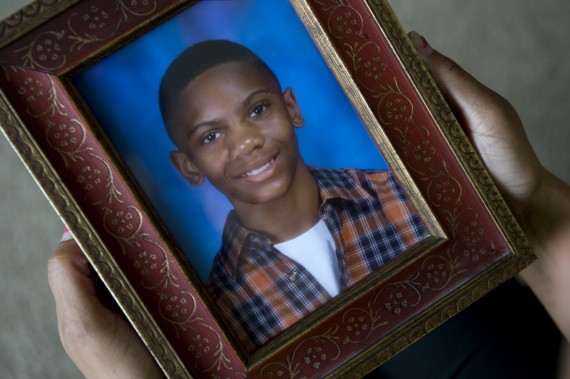
I recently posted two blogs that raise troubling questions about what happens when people with mental disorders become entangled in our criminal justice system. Here are updates about Reginald Latson and Josh Francisco.
IS RACE A FACTOR IN HOW VIRGINIA IS TREATING AUTISTIC BLACK MAN?
The Washington Post is continuing to publicize the troubling case of Reginald Latson, an African American young man with autism currently being held in solitary confinement in Stafford County, Virginia. One has to wonder if race had and is playing a role in this unfolding sad incident in light of recent national events that have shown a spotlight on how race can influence our system.
Latson first became entangled in the legal system four and a half years ago when he was nineteen years old and was waiting outside a public library to return a book. An employee in a nearby school called the sheriff’s office to report that Latson looked suspicious. He was a black youth loitering while wearing a hoodie.
A deputy responded and demanded to know what Latson was doing. It is not uncommon for individuals with autism to react inappropriately in such instances. Latson refused to answer questions and tried to leave. At that point, there was an altercation during which the deputy was injured. Latson was convicted of felony assault of a law enforcement officer and a jury suggested ten years in prison. Ten years.
The Post now tells us that Stafford County Prosecutor Eric Olsen is pressing ahead to further punish Latson instead of releasing him to a facility in Florida that specializes in handling individuals who have mental disorders and have been convicted of crimes.
As The Post’s Ruth Marcus has detailed in two op-ed columns, the story of Mr. Latson, who spends 23 hours daily isolated in a Virginia prison cell with a hole in the floor for a toilet and no proper bed, is a case study of how ill-equipped the criminal justice system is to handle people with mental, developmental and emotional disabilities.
Specialists who have examined Mr. Latson describe him as a boy in a man’s body, given to violent impulses and outbursts. State officials concluded last year that he belongs in a secure therapeutic treatment center, not a prison. They arranged for just such a placement, at a facility in Florida, and a judge signed on to that plan.
But a prosecutor in Stafford County, Eric Olsen, has pressed ahead to keep Mr. Latson in prison rather than at an equally secure facility where he could receive appropriate treatment. Last spring he brought a fresh assault charge after Mr. Latson punched a prison guard — the sort of incident that is sometimes treated as a disciplinary matter in prison, not a new criminal offense.
The effect has been to prolong a toxic cycle of incarceration, violent outbursts and criminal charges. All this for a young man whose problems would be better managed outside the prison system at a secure treatment facility.
No one is suggesting Mr. Latson should go free. But it seems clear that punishment — he has been segregated for long periods from other inmates, deprived of TV, radio, books and magazines and, at various times, Tasered (after punching the guard) and straight-jacketed into a chair — is doing no good. Since his arrest in 2010, Mr. Latson has cycled through 10 or so facilities in Virginia, including jails, prisons, group homes and psychiatric hospitals. He has had recurrent suicidal urges and has lost 40 pounds from an already-lean frame.
Yet as long as Mr. Latson faces pending charges, he cannot be transferred to the treatment facility in Florida.
Given Mr. Olsen’s insistence on further criminal charges, it appears that this senseless cycle can be broken at this point only by a guilty plea or conviction at a new trial for Mr. Latson, which is scheduled for next month. Once that happens, the judge could see that Mr. Latson is moved to the treatment facility after serving a mandatory minimum sentence in Virginia, or Gov. Terry McAuliffe (D) could immediately grant a pardon conditioned on Mr. Latson’s transfer to the facility in Florida. It’s not too late for Virginia to get its act together and recognize the distinction between disability and criminality.
Based on the facts as reported by the Post, it would seem that Reginald Latson not only has his mental disorder working against him, but his skin color as well. The governor should end this spectacle.
THE DEATH OF JOSH FRANCISCO: The ‘What ifs’ that trouble his parents.
Anne Francisco’s heartbreaking letter about her son’s suicide that was first printed here was picked up by The St. Louis Post and Huffington Post, and that additional publicity has lead to a series of disturbing admissions. You might recall that Josh Francisco committed suicide in his jail cell in Missouri after his probation on a stalking conviction was revoked and a judge reinstated his initial three year sentence.
Like so many cases that involve persons with mental illnesses, Josh first got into trouble four years ago after he became psychotic but refused to seek treatment. This led to his wife seeking a restraining order and eventually a divorce. Prosecutors filed a new felony count against Josh and successfully revoked his probation after he called his ex-wife from a mental facility. After his death, Anne received an email from a court official who was familiar with the case and upset about Josh’s suicide.
I asked the prosecuting attorney why Josh was in violation of his probation for making a call from a mental hospital. Obviously there was something wrong or he wouldn’t be in a mental facility! I was told that because the judge did not sign the order declaring him incompetent until after the calls were made, he was viewed as sane at the time the calls were made. Josh is not “mentally ill” until the judge signs off on the psychiatric report that outlines why he is mentally ill.
That email caused Anne to wonder if prosecutors would have pursued the matter if the judge had made his ruling earlier. It is one of the many “what ifs” that the deeply religious family has asked since Josh’s death. Anne told me that she also received an email that suggested Josh’s suicide could have been avoided if his Social Security Disability Insurance had not been terminated.
Josh’s probation officer had found supportive housing for Josh after he was released from the state hospital to the jail in March. But when the agency learned that Josh’s SSDI had lapsed while he was hospitalized they refused to take him. And a person who is incarcerated can’t reapply for SS until he/she is released. That made re-entry into society impossible for Josh. He lingered seven more months in the state’s custody with no movement (he was never even housed in the mental health care unit of the hospital) until he lost all hope that fateful night. If Josh had been able to re-apply for SS before he was released from the state hospital, it could have been a game changer. A reminder of yet another roadblock folks encounter when trying to get help for themselves or loved ones.
The family also was told by prison officials after Josh’s death that the correctional facility where he was being held in solitary confinement hadn’t had enough officers on duty to adequately watch him.
At Josh’s funeral, mourners released balloons in his memory.
In an email Anne wrote: “Josh could not will himself to be free of delusions or depression any more than a cancer patient can will his or her cancer to be gone. Our inability and powerlessness to intervene on Josh’s behalf while he was in custody of the state of Missouri continues to haunt us day and night. He became trapped in the black and white nature of the criminal justice system. My heart hurts for others in our shoes. We have faith that God was with Josh in his solitary confinement, speaking words of love and peace as he was taken home. Until we meet again.”

![]()



